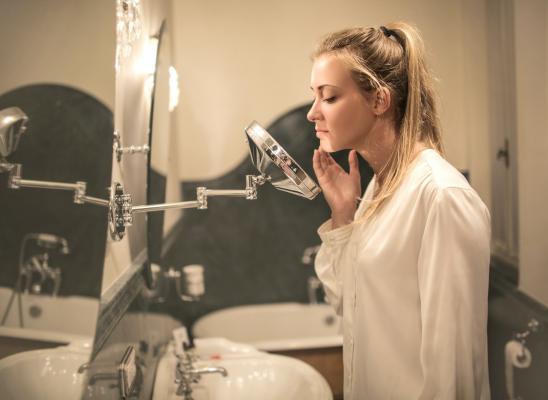Will My Therapist Judge Me?

Online test
Find out the severity of your symptoms with this free online test
One of the fears of going to therapy is the fear of judgment: Will my therapist judge me?
Being judged is a very real fear and keeps many people from seeking help. After all, we live in a judgmental world. And, let’s be honest, mental health issues still carry some stigma despite the progress we’ve made in acceptance. If you’re living with a mental health disorder like skin picking, you’ve probably felt judged or misunderstood by others, even those closest to you. Maybe you’ve even judged yourself a bit harshly.
Skin picking is more than just the act of picking. The behavior also holds meaning. Anecdotally, people with skin picking disorder often describe feelings of shame and guilt about their picking. They report feeling self-conscious or even disgusted by the appearance of their skin and their picking. And they worry about how others will perceive them. So, it’s not surprising that the idea of seeing a therapist stirs that fear.
Understanding the role of a therapist can help alleviate that fear.
The Therapeutic Alliance
When it comes to fears of being judged, it’s important to keep things in perspective. Your issue, whatever that may be, can seem to be the biggest, worst thing EVER. You’re sure the therapist will have never encountered such a case. You may even be expecting that kind of reaction. Your therapist, on the other hand, is trained to see issues in a different way, one that requires openness and acceptance of whatever you’re bringing to the session. It’s this perspective that paves the way for the work you will do together. Here’s why:
One of the most powerful aspects of therapy is what’s known as the therapeutic alliance. The therapeutic alliance is the relationship of trust and rapport that is built between therapist and client. It is this alliance that instills hope for change and sets the stage for the work you will do together. In fact, the therapeutic alliance has been found to be a key factor in a successful therapy experience. In short, the stronger the alliance, the more likely you are to have a positive outcome.
You might wonder how a therapist can build rapport with a client, hear their deepest personal concerns and not judge them. Part of a therapist’s training is developing what’s known as “unconditional positive regard”. It’s a concept that was introduced by the well-known psychologist, Carl Rogers, one of the founding fathers of the humanistic or client-centered approach. Rogers described it as “caring for the client as a separate person, with permission to have his own feelings, his own experiences." Unconditional positive regard is the therapist’s full acceptance of what the client says or does while setting aside their own personal opinions and biases. Seeing a client in this way leaves no room for judgment.
What If Something Feels Off?
Sometimes, things can just feel off or break down between you and your therapist. It’s a good idea to have a conversation with your therapist any time something feels off or uncomfortable. Oftentimes, it’s something you can talk out and continue doing great work together.
Of course, even with all their years of training, therapists are human and have their own experiences. Part of their training is self-awareness and recognizing when their own judgments arise. Judgments are not facts and oftentimes, they can be easily set aside. Should a therapist’s judgments interfere with their ability to work with a client, they refer the client to another therapist. They know that trying to maintain a therapeutic alliance when judgments get in the way undermines therapy. Your best interest is always paramount.
You can confidently see a therapist and know that they will extend that unconditional positive regard to you. When you find the right fit, there is hope for healing and you’ll find support for the journey you’re on.
References
1. Anderson, S., & Clarke, V. (2017). Disgust, shame and the psychosocial impact of skin picking: Evidence from an online support forum. Journal of Health Psychology, 24(13), 1773-1784. https://pubmed.ncbi.nlm.nih.gov/28810443/
2. What the evidence shows. (2019, November 1). https://www.apa.org. https://www.apa.org/monitor/2019/11/ce-corner-sidebar
3. Rogers, C. R. (1957). The necessary and sufficient conditions of therapeutic personality change. Journal of Consulting Psychology, 21(2), 95–103. https://psycnet.apa.org/doiLanding?doi=10.1037%2Fh0045357
Online test
Find out the severity of your symptoms with this free online test
Start your journey with SkinPick
Take control of your life and find freedom from skin picking through professional therapy and evidence-based behavioral techniques.
Start Now



